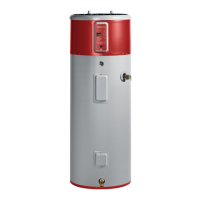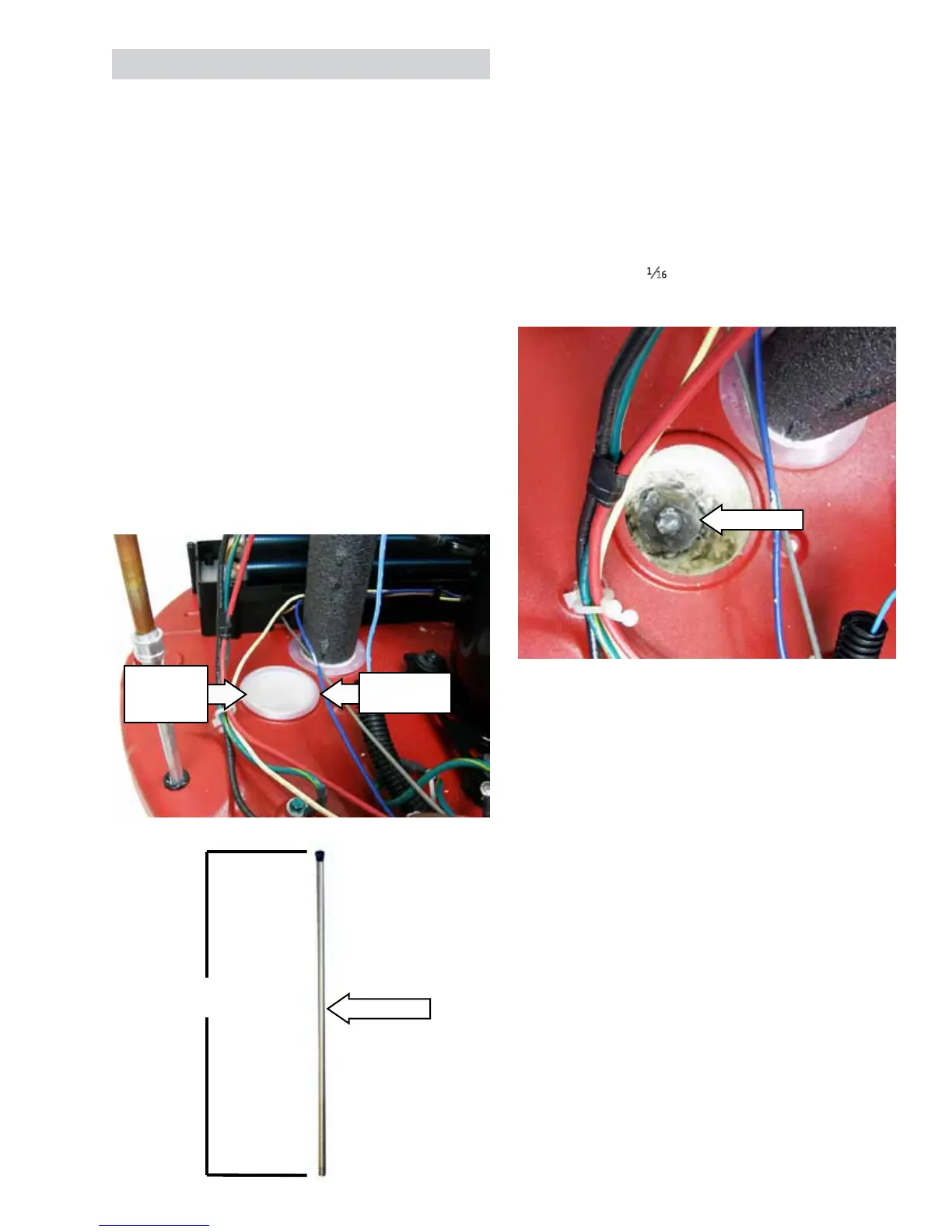– 53 –
Anode Rod
Replacement of the anode rod should be performed
by a licensed plumber.
The anode rod is magnesium wrapped around a
steel core wire to protect against corrosion.
When the tank is lled with water, an electrolytic
process begins, where, over time, the sacricial
magnesium anode is consumed.
All metals fall somewhere on the galvanic scale of
reactivity. When two are placed together in water,
the nobler, or less reactive metal, will remain intact
while the more reactive metal corrodes.
In the water heater, the magnesium corrodes over
time while the steel tank remains intact. The anode
rod should last the life of the water heater unless
unusual water conditions exist.
The anode rod and cover are located to the left of
the compressor. The anode rod is 39 inches long.
To replace the anode rod:
1. Disconnect power to the heater.
2. Shut off the water supply to the heater.
3. Partially drain the water heater.
4. Remove the front shroud. (See
Machine
Compartment Covers.)
5. Remove the anode rod cover, then use a ratchet
wrench and 1
1
⁄
16
-in. deep socket to unscrew the
anode rod from the heater.
Note: If the anode rod won’t loosen, slip a steel pipe
onto a ratchet wrench handle for extra leverage.
6. Lift out and discard the old anode rod.
7. Seal the threads of the anode rod with the
appropriate Teon tape or sealant, then insert
anode rod into water heater.
8. Use a torque wrench and tighten the anode rod
to approximately 90 ft-lbs of torque.
9. Turn on the water supply and power to the
water heater.
Note: A common complaint in some areas of the
country that have a high content of sulfur in the
water is a foul-smelling gas called hydrogen sulde.
The rotten egg odor is created by a natural process
involving sulfur when water is heated. The odor is
not considered harmful.
To reduce or eliminate a rotten egg odor, an
aluminum anode rod is available for purchase and
installation by ordering accessory Part #AGHAA39.
Anode Rod
Insulation
Cover
Anode Rod
Under Cover
Anode Rod
39"
Anode Rod

